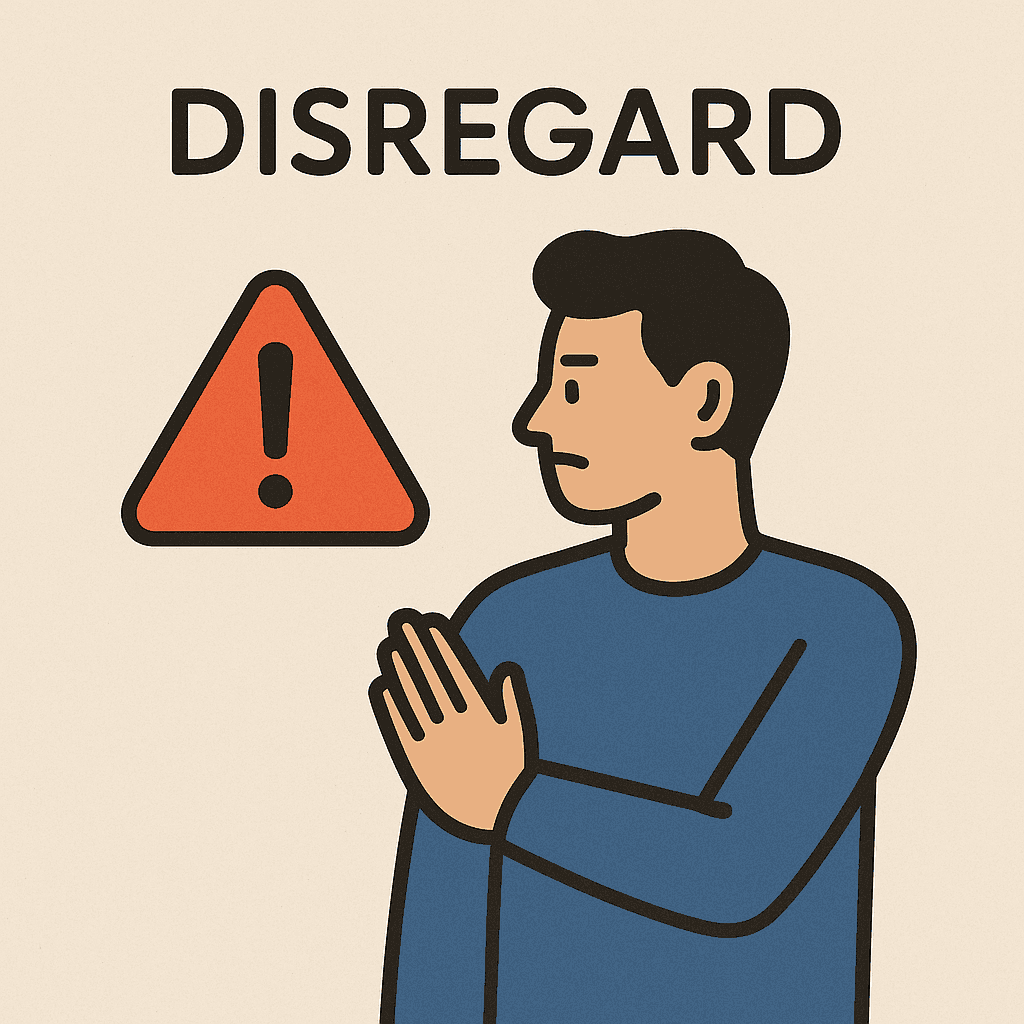Meaning
Disregard means to ignore something or pay no attention to it. It can also refer to a lack of consideration or respect for something or someone.
- As a verb, it means to ignore or treat without due attention.
- As a noun, it refers to a lack of attention or respect.
Grammar and Usage
Part of speech:
- Verb (transitive)
- Noun
Verb pattern:
-
disregard + noun
- He disregarded my advice.
- You can disregard the last message.
Noun usage:
-
with prepositions: in disregard of, with total disregard for
- He acted in disregard of the law.
Common Phrases
- In disregard of – ignoring rules or warnings
- With complete disregard for – showing no concern or respect
- Utter disregard – total lack of attention or care
Collocations
- disregard for safety/law/truth/rules
- blatant disregard
- show disregard
- act with disregard
- disregard an order/advice/message
Examples
- He disregarded the doctor's warning and continued smoking.
- The company was fined for its disregard for safety regulations.
- She disregarded his comments and kept working.
- Their blatant disregard for the rules caused an accident.
- The manager disregarded the complaints of his staff.
- They acted in disregard of the law.
- We should not disregard the opinions of others.
- His behavior shows a complete disregard for authority.
Synonyms or Related
- ignore
- neglect
- overlook
- dismiss
- pay no heed to
Antonym
- heed
- consider
- respect
- obey
